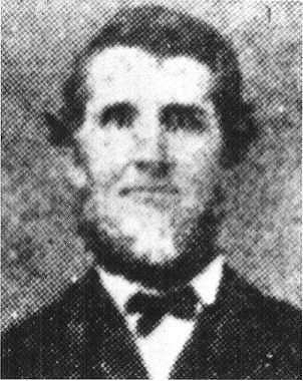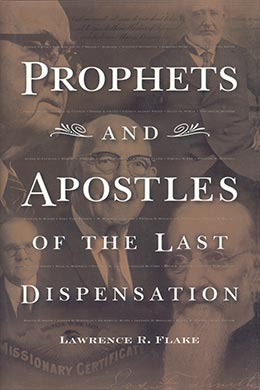Lyman Wight
Lawrence R. Flake, Prophets and Apostles of the Last Dispensation (Provo, UT: Religious Studies Center, Brigham Young University, 2001), 383–85.

Born: 9 May 1796, Fairfield, New York
Quorum of the Twelve Apostles: 8 April 1841 (age 44)
Excommunicated: 3 December 1848
Died: 31 March 1858 (age 63), Dexter, Texas
You will take Joseph Smith and the other prisoners into the public square of Far West, and shoot them at 9 o’clock to-morrow morning.” [1] Among the prisoners receiving this illegal sentence on 1 November 1838 was Lyman Wight, known by friend and foe alike as the “Wild Ram of the Mountains.” [2] Lyman was born in Fairfield, New York, during the final year of George Washington’s presidency. [3] He cast his lot with the Church in Kirtland only a few months after its organization. A year later he went as a missionary to Cincinnati, where he baptized nearly one hundred persons, many of whom traveled with him to Jackson County, Missouri. Brother Wight commanded the Saints in their defense against the mobs there, and after the Church was driven from that place, he volunteered to travel five hundred miles to Kirtland to report to Joseph Smith. When Presiding Bishop Edward Partridge asked him if his family’s unsettled condition would allow his going, he replied that “his wife lay by the side of a log in the woods, with a child three days old, and he had three days’ provisions on hand; so he thought he could go very well.” [4] His visit with the Prophet Joseph Smith resulted in the formation of Zion’s Camp, which he helped recruit. As a colonel in the Missouri Militia, Elder Wight was both respected and feared by many persecutors of the Saints.
On the night before the execution on the square of Far West was to be carried out, General Moses Wilson came to Elder Wight and said, “We have nothing against you, only that you are associated with Joe Smith. He is our enemy and a damned rascal If you come out and swear against him, we will spare your life.” Brother Wight replied that Joseph Smith is “as good a friend as you have got. Had it not been for him, you would have been in hell long ago, for I should have sent you there, by cutting your throat, and no other man but Joseph Smith could have prevented me.” Wilson said, “Wight, you are a strange man; but if you will not accept my proposal, you will be shot to-morrow morning at 8.” Elder Wight replied, “Shoot and be damned.” [5] The sentence was not carried out, but Lyman Wight suffered inhumane incarceration with the Prophet and others until their escape six months later.
Two years later, in Nauvoo, Lyman Wight was called to be one of the members of the Quorum of the Twelve Apostles. In that capacity he returned to Kirtland in 1842, where he rebaptized about two hundred Saints who had apostatized in 1837 and 1838. Fiercely devoted to Joseph Smith, Elder Wight was unable to transfer that allegiance to Brigham Young after the Prophet’s martyrdom. “The day was when there was somebody to control me, but that day is past,” he declared. [6] Thirteen years earlier the Lord had warned in a revelation, “Let my servant Lyman Wight beware, for Satan desireth to sift him as chaff” (D&C 52:12). In 1845 he led a small group of dissident members to Texas, where they settled in various locations. At a general conference in 1848, the “Wild Ram of the Mountains,” Lyman Wight, was excommunicated. When he died ten years later, his followers scattered. Some came to Utah where they were rebaptized. [7]
Notes
[1] History of the Church, 3:190.
[2] History of the Church, 7:435.
[3] Jeremy Benton Wight, The Wild Ram of the Mountain: The Story of Lyman Wight (Afton, WY: Afton Thrifty Print, 1996), 28.
[4] Andrew Jenson, “Lyman Wight,” Historical Record 5 (December 1886): 108.
[5] Jenson, “Wight,” 110.
[6] Jenson, “Wight,” 111.
[7] “Lyman Wight Named to Presidency At Adam-ondi-Ahman,” Church News, 21 January 1961, 16.
